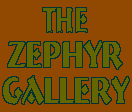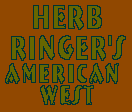 |
||||||
|
|
We mumbled, "Good to be back." Silence. One of those leafy, pungent Jackson Hole days. It was very, very good to be home. Remembering that day, I catch whiffs of wildness in the mountains. Yes, peace was upon us. Wars followed. Wars are with us now. But back then we had life to live, and survivor’s guilt as a burden and we knew there would be peace in our time. Didn’t turn out that way, but I want to tell you more about Fred. I heard much later that he was directly related to John Brown of Harpers Ferry. I can’t vouch for that. but I can say with assurance that Fred was a rebel. That didn’t sit well with the well-educated refugee from Nazism who came to our valley some time before Pearl Harbor. He was a decent person, master of at least three languages, a European sophisticate and, naturally, a novelty in our remote valley. In one of my rants in this Zephyr space I mentioned that he accounted for Fred’s rebellious, grub eating ways with this sentence: "He’’s self-educated." That was true. Cross-country and down-hill skier, ski jumper, mountaineer, he also had cowboy skills and he looked at life in these United States with a skeptical eye. He had eaten beetle grubs, found them good, and he learned mountains. Fred had spells of being irresponsible, not always finishing a project, not always keeping to an agreement. Well, nobody’s perfect One fine day Fred and Olaus and I drove over the pass into Idaho then north along the west side of the Tetons and climbed to timberline. Conversation along the way was how to separate moose tracks from elk tracks. Fred pointed to a cliffside where we would build a three sided cabin, using the cliff as fourth side. Fred felled trees, Olaus and I limbed and notched them. The work went well, but then Fred’s back went out on him. It had happened before. He stretched out on the ground and put a flat stone under his back. He held on to something while Olaus pulled hard on his feet. Fred got up and walked around, as good as new. By evening we had a half-built cabin to stand back from and estimate what it would take to finish it. We built a fire and cooked supper. Fred and Olaus got into a friendly, but intense, argument about the rights and wrongs of society. Turned out that Fred was a self-taught socialist and he tried his best to get some agreement from Olaus. I listened, but at 16 or 17, I was too naive to take any of it very seriously. I do remember Fred saying that when his father died he went to the town’s purveyor of caskets and had a conversation. Fred claimed that he saw nothing but dollar signs in the seller’s words of sympathy. Why is it that the only thing I recall from that long exchange between two passionate defenders of belief? Could it be that Fred stepped down from abstractions to an encounter, two humans caught in a situation? Next day we built the log walls high enough to take closely set stringers for roof supports, then heaped boughs on the stringers, a sort of pleasant weaving job. We packed up and crossed the pass into Cascade canyon, headed for Jenny Lake. Hours of stillness, very little conversation, faint whispers of three pairs of feet on the dark earth, mile after mile in black night, mountain cliffs not disturbing us with spectacle. I never learned whether that cabin held up against heavy snowfall or whether Fred ever used it to shelter dudes. As I remember it, his career as mountain guide didn’t last very long, but in the previous winter he had asked Olaus and Larry Haines, Teton county photographer and physicist and me to help him take two clients up middle fork of Cascade canyon. Early morning, getting ready for the trek Fred dumped a pack down at my feet. "That’s yours, Martin." I hefted it, set it down, it went "clunk." That pack bulged with canned food, the heaviest load I’d ever had to sling onto my young, unconditioned back. I thought Fred was kidding, but he wasn’t. The two clients had nothing but sleeping bags and personal effects in their packs. So, there we were, bearers headed into Teton timberlines with all the comforts for a pair of young, strong guys rich enough to pay for the service. I am sure those two would have had a much better adventure, more to talk about back home, if we had simply left that damn tent home, and those food cans and simply dug a hole in the snow, built a little fire, cooked a simple meal and bedded down. ***** Skipping ahead to Cold War days, three of us, Mark and Bill and me, decided it would be a lark to ski across the Teton range in December. I thought I knew those mountains like the back of my hand, but mountains are devious creatures, especially when they drape themselves in blizzards. I’ll skip most of our journey--- it was mainly slog, slog. On the third day we arrived at an unknown crest that we later named Deadend Peak and looked out into heavy snowfall hoping to find a landmark. None, just wind driving snow. I finally figured it out; we were on a north edge of Death Canyon. Get down to the bottom of Death, the only choice. Taking our time, trying our best to not give any excuses for snow slides (That’s what we called them, not avalanches), avoiding cliffs and outcrops, we reached the canyon’s floor. We slogged on in gathering darkness, finally reaching the lake at the mouth of the canyon, tested the ice. Good enough. We skied a beeline track on snow layered over ice, to the ranch at the outlet. Rockefeller property. When one of the Rockefellers gave most of his holdings in upper Jackson Hole to the federal government as a gift, with the proviso that it be an extension of National Park lands, he held back two or three pieces for his family. This was one of them. The ranch headquarters building we now entered faced one of the most gorgeous views in all of Teton county, but we didn’t look back. The door was unlocked, as is, or was, the custom in remote regions. We found firewood, built a fire, laid back and enjoyed survival. It had been a dumb journey, could have turned out really bad. In mountains one has to know the territory, or take care in the learning, and that’s not all, there are social niceties. When leaving a remote cabin or house be sure to replenish kindling and firewood that was there on your arrival; clean up thoroughly; close door tightly. Nobody wants invasions by squirrels, mice or porcupines. Also, when you come to an inhabited dwelling way off on the outskirts of society, you drop in to say hello. Once, on a ski solo, I passed a house that I knew was inhabited, but kept going. Jackson Hole complaint network caught up with me in no time. Frances Judge, wife of Teton Park’s Chief Ranger bawled me out for that. She was right, I had no defense. *** Recently, looking back, I see that I have had dozens of perfect moments while meeting another animal and I am in an alert and open mood. These are short, quick experiences that stop me cold, realization of the shape and style and alert instincts of that animal, how different that life is from mine. I’m not talking about tolerance or any other shape or form of condescension; I’m talking about recognition. That animal lives, has its own life cycle, so do I. And we are different. It’s amazing that a dog, even a wolf or a coyote, has the ability to accept a human as a member of the pack. Think of it, our standing on two legs most of the time, our height making it necessary for the other animal to look high up to check out our eyes, windows to our souls. Our ears are static and weird, our muzzles indistinct, nearly absent, and yet the other animal accepts us, even allows us to be Alpha. Other animals aren’t as accommodating, recognizing humans as dangerous creatures to be avoided. Most animals are unknown to us or we subject them to sentimental recognition. Now I’m remembering a canoe sweeping down the Upper Yellowstone river, brother Donald and Olaus and me. Ahead of us is a grizzly leisurely swimming the river and we are bearing down on him and no amount of back-paddling will do a damn thing to avoid that bear and the current has us in its grip, too late to shift into another strand of current. Then the bear notices us, knows we were more than a drifting log. The bear shifts from a quiet swim across the river to a sudden surge, "taking", as Olaus later said, "half the river with him." That was a perfect moment, accepting with a kind of awe, differences and dangers. My few experiences with Trumpeter Swans come closest to complete immersion in the otherness of everything, and I have tried, in the on-line journal SwansCommentary to express those moments, the universe taking on the appearance of diversity and danger and eons of time. We are latecomers to those eons, and the startling fact is that we are one among many, many other creatures, most of whom are living among us without our even knowing about them. They generally don’t know us either. Some are friendly, some poisonous, some deadly. Only today I learned that it is the little larval form of Chiggers that bites me and gives me a terrible dermatitis. I’d always assumed it was the adult female laying eggs in skin who, when viewed by an electron microscope, looks like a ferocious heavy-armored dinosaur with formidable biting apparatus. That’s all, a sudden stop, a chill of recognition, another being immersed as we all are in layers of deep mystery. Then life gets going again. ***** Back to the peace era that didn’t happen. Am I angry about that? Absolutely. The War Against Fascism was Hell. Millions of people died, innocents and "enemy combatants," only to be superceded by a Cold War turned hot and it stayed that way. Now we eat the bitter truths. However, running the risk of being teased for unwarranted optimism, after about fifty years of being told that I am a pessimist refusing to look on the bright side, I say this: being with protesters, with resisters, and talking with people who might agree and might not, and listening, that’s where things happen. Time and time again you see a little gain here, an upset there; maybe another tiny step a day later, or else something so ridiculously hypocritic and savagely tunnel-visioned that you have to laugh, and a good laugh is a perfect moment too. Do these tiny little personal happenings add up? I believe they do, in the grand, and mainly unrecognized account of our species’ history on this planet. We just have to keep on doing the right thing. Will peace and justice prevail in time? No one can answer that question. In this world of mystery and uncertainty, SI, SE PUEDE. (WE CAN DO IT). Say it, my friends, say it out loud. Who knows, it might give you a perfect moment. |
|||||







 Grant
Hagen and I dropped in on Fred Brown at his house near Wilson, at the
foot of Teton pass. We went outside and sat on
the ground in the shade of the house and Fred said, "Good to have
you guys back."
Grant
Hagen and I dropped in on Fred Brown at his house near Wilson, at the
foot of Teton pass. We went outside and sat on
the ground in the shade of the house and Fred said, "Good to have
you guys back."